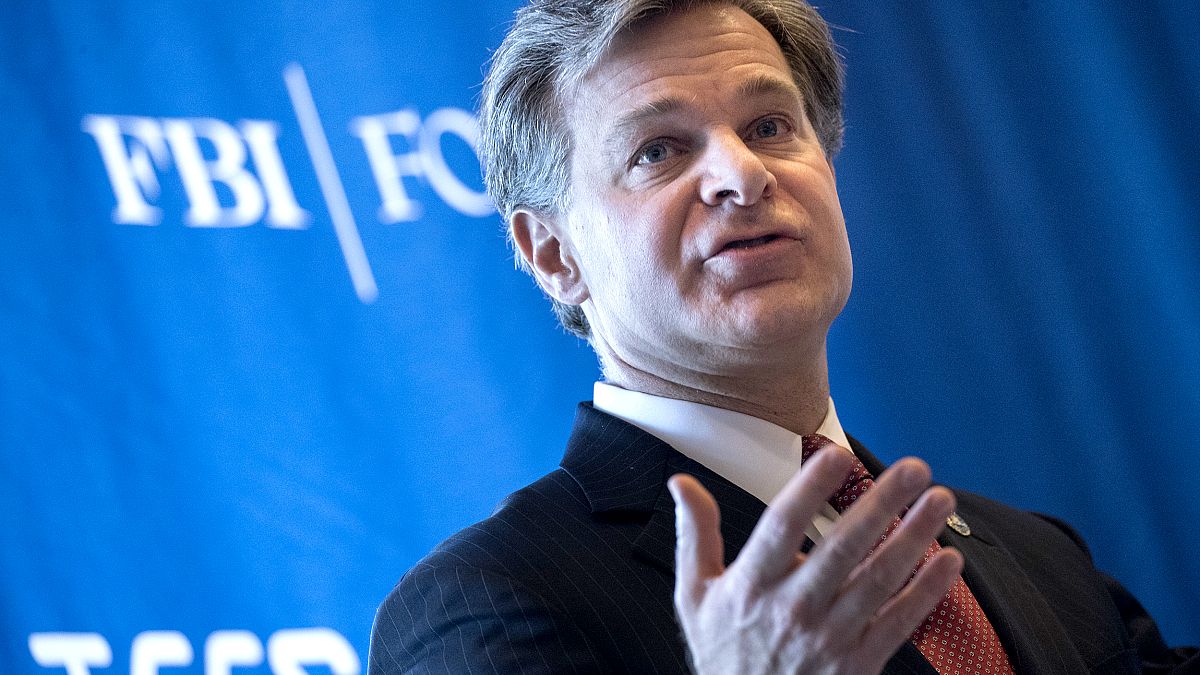A report from former government officials and researchers at Stanford University says the U.S. should do more to stop foreign election meddling before 2020.
Researchers at Stanford University say there's a long list of steps the United States should be taking — but isn't — to prevent foreign countries from interfering in the 2020 elections.
A team including two former U.S. ambassadors and Facebook's former chief security officer created a list of 45 tasks for government officials and private companies to try to check off in the 17 months before Americans vote for president and other elected offices.
And they warned that time is critical.
"Our recommendations are practical, concrete, and achievable before 2020 — but they demand action now," wrote Michael McFaul, the editor of the report and a former U.S. ambassador to Russia, in an introduction.
The report's authors said they wanted to avoid a repeat of 2016, when Russian operatives used a combination of tactics including stealing documents from Hillary Clinton's campaign and buying Facebook ads under fake names to try to sway voters, according to U.S. prosecutors and intelligence agencies.
Many of the authors have deep experience as observers of Russia from high-level perches within the U.S. government or American corporations, such as Facebook. The group of Stanford researchers includes people with expertise in cybersecurity, a law professor and a former president of Estonia, Toomas Ilves, as well as Eileen Donahoe, a former U.S. ambassador to the United Nations Human Rights Council.
The ideas address a wide range of possible vulnerabilities, from hacking of voting machine software to foreign agents buying internet ads to sway an election. It makes recommendations about foreign-owned media and about the spread of materials obtained through hacking.
Whether the Trump administration, lawmakers or tech executives will move forward with the recommendations is an open question. Last month, a bipartisan group of senators re-introduced legislation that if passed would regulate online political ads as if they were radio or TV ads, which currently have stricter reporting requirements for transparency. The bill hasn't received a vote, though.
Some of the proposals, such as passing a federal law to regulate online political ads, have had difficulty finding bipartisan support. Others, such as an idea to hold congressional hearings that would highlight the subject of free and fair elections internationally, wouldn't require the same level of political consensus.
President Donald Trump has frequently attacked the idea that Russia significantly affected the outcome of the 2016 U.S. election, and he has criticized those who have investigated Russia's role, including former Justice Department special counsel Robert Mueller.
"The United States has failed to work together to respond to what happened in 2016," said Alex Stamos, the former Facebook security chief and a contributor to the Stanford report.
"Whatever you think of the political outcomes of the Mueller report, the undisputed facts it lays out should motivate Congress to act on simple, bipartisan issues, such as defining the rules for online political ads and funding states to improve election security," said Stamos, who is also an NBC News and MSNBC cybersecurity analyst.
FBI Director Chris Wray has said that despite increased vigilance within the U.S. government and recent changes on social media platforms, Russian efforts to influence American public opinion remain a threat.
Last month, Facebook removed scores of pages with disinformation that it said originated in Iran, but Facebook's security vendor FireEye warned at the same time that the U.S. was at risk of becoming a "free-for-all" for foreign interference.
The researchers are scheduled to hold an all-day conference on election security Thursday at the private university near Palo Alto, California.
